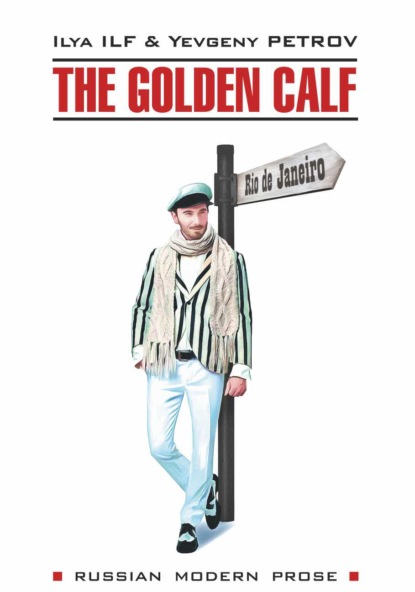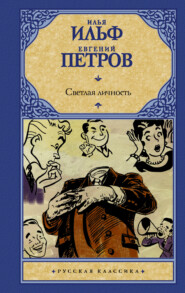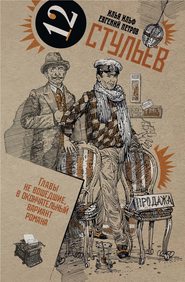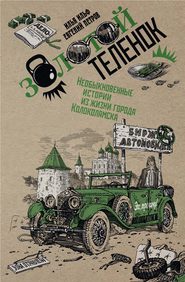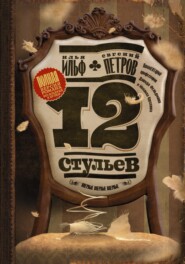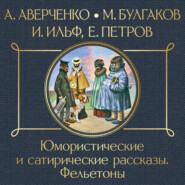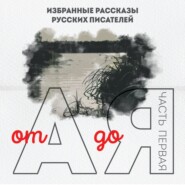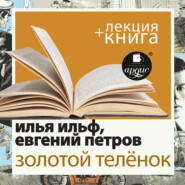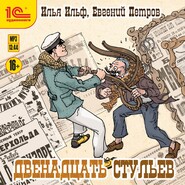По всем вопросам обращайтесь на: info@litportal.ru
(©) 2003-2024.
✖
Золотой теленок / The Golden Calf
Автор
Жанр
Серия
Год написания книги
1931
Теги
Настройки чтения
Размер шрифта
Высота строк
Поля
Hearing the word “purge,” Lapidus Jr. perked up, took Koreiko by the elbow, and pulled him toward the enormous stained-glass window, which depicted two gothic knights.
“You haven’t heard the most interesting bit about Berlaga yet,” he whispered. “Berlaga is healthy as a horse.”
“What? So he’s not in the nuthouse?”
“Oh yes, he is.”
Lapidus smiled knowingly.
“That’s the trick. He was simply afraid of the purge and decided to sit this dangerous period out. Faked mental illness. Right now, he’s probably growling and guffawing. What an operator! Frankly, I’m envious.”
“Is there a problem with his parents? Were they merchants? Undesirable elements?”
“Yes, his parents were problematic, and he himself, between you and me, used to own a pharmacy. Who knew the revolution was coming? People took care of themselves the best they could: some owned pharmacies, others even factories. Personally, I don’t see anything wrong with that. Who knew?”
“They should have known,” said Koreiko icily.
“That’s exactly what I’m saying,” agreed Lapidus quickly, “people like this do not belong in a Soviet organization.”
He gave Koreiko a wide-eyed look and returned to his desk.
The hall was filled with employees. Flexible metal rulers, shining and silvery like fish scales, abacuses with palm beads, heavy ledgers with pink and yellow stripes on their pages, and a multitude of other pieces of stationery great and small were pulled out of desk drawers. Tezoimenitsky tore yesterday’s page off the wall calendar, and the new day began. Somebody had already sunk his young teeth into a large chopped mutton sandwich.
Koreiko settled down at his desk as well. He firmly planted his suntanned elbows on the desk and started making entries in a current accounts ledger.
Alexander Ivanovich Koreiko, one of the lowest-ranking employees of the Hercules, was approaching the very end of his youth. He was thirty-eight. His brick-red face sported white eyes and blonde eyebrows that looked like ears of wheat. His thin English mustache was the color of ripe cereal, too. His face would have looked quite young had it not been for the rough drill-sergeant’s jowls that cut across his cheeks and neck. At work, Alexander Ivanovich carried himself like an army volunteer: he didn’t talk too much, he followed instructions, and he was diligent, deferential, and a bit slow.
“He’s too timid,” the head of Finance and Accounting said, “too servile, if you will, too dedicated. The moment a new bond campaign is announced, he’s right there, with his one-month salary pledge. The first to sign up. And his salary is a measly forty-six rubles a month. I would love to know how he manages to live on that…”
Alexander Ivanovich had one peculiar talent: he could instantly divide and multiply three- and four-digit numbers in his head. Despite this talent, they still thought Koreiko was somewhat slow.
“Listen, Alexander Ivanovich,” an office mate would ask, “how much is 836 times 423?”
“Three hundred and fifty-three thousand six hundred and twenty-eight,” Koreiko would answer after a moment’s hesitation.
The co-worker wouldn’t even bother to check the result because he knew that the slow Koreiko never made a mistake.
“Someone else would have made a career out of this,” Sakharkov, Dreyfus, Tezoimenitsky, Musicant, Chevazhevskaya, Borisokhlebsky, Lapidus Jr., the old fool Kukushkind, and even Berlaga, the one who escaped to the nuthouse, often repeated. “But this one is a loser. He’ll spend his whole life making forty-six rubles a month.”
Of course, his co-workers, or the head of Finance and Accounting, Comrade Arnikov himself, or even Impala Mikhailovna, the personal secretary to the director of the entire Hercules, Comrade Polykhaev – all of them would have been shocked had they found out what exactly Alexander Ivanovich Koreiko, the quietest of the clerks, had been up to just one hour earlier. For whatever reason, he dragged a particular suitcase from one train station to another. The suitcase contained not Odessa Centennial pants, nor a boiled chicken, and certainly not The Goals of the Young Communist League in the Countryside, but ten million rubles in Soviet and foreign currency.
In 1915, Alex Koreiko, twenty-three, the ne’er-do-well son of middle class parents, was one of those who are deservedly known as “retired high-schoolers.” He didn’t finish school, didn’t take up any trade, he just hung out on the boulevards and lived off his parents. His uncle, the manager of the regional military office, had shielded him from the draft, so he could listen to the cries of the half-witted paperboy without worrying:
“The latest cables! Our troops are advancing! Thank God! Multiple casualties! Thank God!”
Back then, Alex Koreiko pictured his future in the following way: he’s walking down the street and suddenly, near a downspout covered with zinc stars, right next to the wall, he sees a burgundy leather wallet that’s squeaky like a new saddle. There’s a lot of money in the wallet, 2,500 rubles… After that, everything would be swell. He pictured finding the money so often that he knew exactly where it was going to happen – on Poltava Victory Street, in an asphalt corner formed by the jutting wall of a building, near the star-studded downspout. There it lies, his leather savior, dusted with dry acacia flowers, next to a flattened cigarette butt. Alex walked to Poltava Victory Street every day, but to his great surprise, the wallet was never there. He’d poke the garbage with a student’s walking stick and mindlessly stare at the glazed metal sign that hung by the front door: YU. M. SOLOVEISKY, TAX ASSESSOR. Then he would wander home in a daze, throw himself on the red velvet couch and dream of riches, deafened by the ticking of his heart and pulse. His pulse was shallow, angry, and impatient.
The revolution of 1917 chased Koreiko off his velvet couch. He realized that he could become the lucky heir to some wealthy strangers. He felt in his guts that the country was awash in unclaimed gold, jewelry, expensive furniture, paintings and carpets, fur coats and dining sets. One just had to move fast and grab the riches, the sooner the better.
At the time, however, he was still young and foolish.He took over a large apartment – whose owner was smart enough to escape to Constantinople on a French ship – and started living there openly. Over the course of a week, he grew accustomed to the lavish lifestyle of the fugitive businessman: he drank the muscat wine he found in the cupboard with pickled herring from his food ration and sold knickknacks at the flea market. He was quite surprised when he was arrested.
He got out of prison five months later. He hadn’t given up the idea of becoming rich, but he came to realize that such an undertaking has to be secret, hidden, and gradual. First, he had to acquire some camouflage. In the case of Alexander Ivanovich, the camouflage came in the form of tall orange boots, huge dark-blue breeches, and the long military-style jacket of a food-supply official.
In those distressing times, everything that had been made by human hands wasn’t working as well as it had before: houses no longer gave any protection from the cold, food wasn’t filling, the electricity was only turned on to round up deserters and bandits, running water didn’t reach beyond the first floor, and streetcars did not run at all. At the same time, the elements became more ferocious and dangerous: the winters were colder than before, the winds were stronger, and the common cold, which used to put a person in bed for three days, killed him within the same three days. Groups of young men without any discernible occupation wandered the streets, singing a devil-may-care ditty about money that had lost its value:
I am standing at the till,
Not a single smaller bill.
Can you break a hundred million fo-o-o-r me?
Alexander Ivanovich watched in consternation as the money that he had gone to incredible lengths to acquire was turning into dust.
Typhoid was killing people by the thousands. Alex was selling medications that had been stolen from a warehouse. He made five hundred million on the typhoid, but inflation turned it into five million within a month. Then he made a billion on sugar; inflation turned it into dust.
During that period, one of his most successful operations was the heist of a scheduled food train that was headed for the famished Volga region. Koreiko was in charge of the train. The train left Poltava for Samara but never reached Samara and did not return to Poltava either. It disappeared en route without a trace. Alexander Ivanovich disappeared with it.
Chapter 5. The underground kingdom
The orange boots surfaced in Moscow toward the end of 1922. Above the boots, a thick greenish leather coat lined with golden fox fur reigned supreme. A raised sheepskin collar with a quilted lining protected a cocky-looking mug, with short Sebastopol-style sideburns, from the elements. A lovely Caucasian hat made of curly fleece adorned the head of Alexander Ivanovich.
Meanwhile, Moscow was already beginning to fill with brand new automobiles that sported crystal headlights, and the nouveau riche, in tony sealskin skull caps and coats lined with patterned Lyre fur, paraded in the streets. Pointy gothic shoes and briefcases with luggage-style belts and handles were coming into vogue. The word “citizen” started to replace the familiar “comrade,” and some young people, who were quick to appreciate the real joys of life, were already dancing the Dixie One-step and even the Sunflower Foxtrot in the restaurants. The city echoed with the shouts of smart coachmen in expensive carriages, while inside the grand building of the Foreign Ministry the tailor Zhurkevich sewed tailcoats, day and night, for Soviet diplomats who were preparing to go abroad.
To his surprise, Alexander Ivanovich realized that his outfit, which projected valor and wealth in the provinces, was seen as a curious anachronism in Moscow and cast an unfavorable light on its owner.
Two months later, a new company called Revenge, the Industrial Chemicals Cooperative, opened on Sretensky Boulevard. The Cooperative occupied two rooms. The first room was decorated with a portrait of Friedrich Engels, one of the founders of socialism. Beneath it sat Alexander Ivanovich himself, with an innocent smile on his face. He wore a gray English suit with red silk stripes. The orange pirate boots and the crude sideburns were gone. Koreiko’s cheeks were clean shaven. The manufacturing plant was located in the back room. It consisted of two oak barrels with pressure gauges and water-level indicators, one on the floor, the other in the loft. The barrels were connected by a thin enema hose through which some liquid babbled busily. When all the liquid ran from the upper barrel into the lower one, a boy in felt boots would appear on the shop floor. Sighing like an adult, the boy scooped the liquid from the lower barrel with a bucket, dragged the bucket to the loft, and emptied it into the upper barrel. After completing this complex manufacturing process, the boy would go to the office to warm up, while the enema hose would start sobbing again. The liquid continued on its usual path from the upper reservoir to the lower.
Alexander Ivanovich himself wasn’t quite sure which chemicals were being produced by the Revenge Cooperative. He had more important things to do. Even without the chemicals his days were already full. He moved from bank to bank, applying for loans to expand the operation. He signed agreements with state trusts to supply the chemicals and obtained raw materials at wholesale prices. Loans were also coming in. Reselling the raw materials to state factories at ten times wholesale was very time-consuming, and the black-market currency operations he conducted at the foot of the monument to the heroes of the battle of Plevna were also extremely labor-intensive.
After a year, the banks and the trusts developed a desire to find out how much the Revenge Industrial Cooperative benefited from all the financial and material aid it received, and they wanted to know whether the healthy private establishment needed any further assistance. The commission, decked out in scholarly beards, arrived at the Revenge in three coaches. The chairman stared into Engels’s dispassionate face for a long time and kept banging on the fir counter with a cane, in an attempt to summon the administrators and members of the cooperative. Finally the door of the manufacturing plant opened, and a teary-eyed boy with a bucket in his hand appeared in front of the commission.
An interview with the young representative of the Revenge revealed that the manufacturing process was going full-throttle, and that the owner had been gone for a week. The commission didn’t spend much time at the production plant. In its taste, color, and chemical composition, the liquid that babbled so busily in the enema hose resembled ordinary water, and that’s exactly what it was. Having established this incredible fact, the chairman said “Hmm” and looked at the other members, who also said “Hmm.”
Then the chairman looked at the boy with a terrible smile and asked:
“And how old are you?”
“Twelve,” answered the boy.
And then he burst out crying so inconsolably that the members ran outside, pushing each other on the way, climbed into their coaches, and left in total confusion. As for the Revenge Cooperative, all of its operations were duly recorded in the profit and loss balance sheets of bank and trust ledgers, specifically in the sections that say nothing about profits and deal exclusively with losses.
On the same day that the commission had such a meaningful exchange with the boy at the Revenge, Alexander Ivanovich Koreiko got off the sleeper car of an express train two thousand miles from Moscow, in a small grape-growing republic.
He opened his hotel room window and saw a small oasis town, complete with bamboo water lines and a shoddy mud-brick fortress. The town was separated from the sands by poplars and was filled with Asiatic hubbub.
The next day he learned that the republic had started building a new electric power plant. He also learned that money was short, and that the construction, which was crucial to the future of the republic, might have to be halted.
And so the successful entrepreneur decided to help out. He got into a pair of orange boots again, put on an embroidered Central Asian cap, and headed to the construction office with a fat briefcase in his hand.
They didn’t receive him very warmly, but he carried himself with dignity, didn’t ask anything for himself, and insisted that the idea of bringing electricity to backward hinterlands was especially dear to his heart.
“You haven’t heard the most interesting bit about Berlaga yet,” he whispered. “Berlaga is healthy as a horse.”
“What? So he’s not in the nuthouse?”
“Oh yes, he is.”
Lapidus smiled knowingly.
“That’s the trick. He was simply afraid of the purge and decided to sit this dangerous period out. Faked mental illness. Right now, he’s probably growling and guffawing. What an operator! Frankly, I’m envious.”
“Is there a problem with his parents? Were they merchants? Undesirable elements?”
“Yes, his parents were problematic, and he himself, between you and me, used to own a pharmacy. Who knew the revolution was coming? People took care of themselves the best they could: some owned pharmacies, others even factories. Personally, I don’t see anything wrong with that. Who knew?”
“They should have known,” said Koreiko icily.
“That’s exactly what I’m saying,” agreed Lapidus quickly, “people like this do not belong in a Soviet organization.”
He gave Koreiko a wide-eyed look and returned to his desk.
The hall was filled with employees. Flexible metal rulers, shining and silvery like fish scales, abacuses with palm beads, heavy ledgers with pink and yellow stripes on their pages, and a multitude of other pieces of stationery great and small were pulled out of desk drawers. Tezoimenitsky tore yesterday’s page off the wall calendar, and the new day began. Somebody had already sunk his young teeth into a large chopped mutton sandwich.
Koreiko settled down at his desk as well. He firmly planted his suntanned elbows on the desk and started making entries in a current accounts ledger.
Alexander Ivanovich Koreiko, one of the lowest-ranking employees of the Hercules, was approaching the very end of his youth. He was thirty-eight. His brick-red face sported white eyes and blonde eyebrows that looked like ears of wheat. His thin English mustache was the color of ripe cereal, too. His face would have looked quite young had it not been for the rough drill-sergeant’s jowls that cut across his cheeks and neck. At work, Alexander Ivanovich carried himself like an army volunteer: he didn’t talk too much, he followed instructions, and he was diligent, deferential, and a bit slow.
“He’s too timid,” the head of Finance and Accounting said, “too servile, if you will, too dedicated. The moment a new bond campaign is announced, he’s right there, with his one-month salary pledge. The first to sign up. And his salary is a measly forty-six rubles a month. I would love to know how he manages to live on that…”
Alexander Ivanovich had one peculiar talent: he could instantly divide and multiply three- and four-digit numbers in his head. Despite this talent, they still thought Koreiko was somewhat slow.
“Listen, Alexander Ivanovich,” an office mate would ask, “how much is 836 times 423?”
“Three hundred and fifty-three thousand six hundred and twenty-eight,” Koreiko would answer after a moment’s hesitation.
The co-worker wouldn’t even bother to check the result because he knew that the slow Koreiko never made a mistake.
“Someone else would have made a career out of this,” Sakharkov, Dreyfus, Tezoimenitsky, Musicant, Chevazhevskaya, Borisokhlebsky, Lapidus Jr., the old fool Kukushkind, and even Berlaga, the one who escaped to the nuthouse, often repeated. “But this one is a loser. He’ll spend his whole life making forty-six rubles a month.”
Of course, his co-workers, or the head of Finance and Accounting, Comrade Arnikov himself, or even Impala Mikhailovna, the personal secretary to the director of the entire Hercules, Comrade Polykhaev – all of them would have been shocked had they found out what exactly Alexander Ivanovich Koreiko, the quietest of the clerks, had been up to just one hour earlier. For whatever reason, he dragged a particular suitcase from one train station to another. The suitcase contained not Odessa Centennial pants, nor a boiled chicken, and certainly not The Goals of the Young Communist League in the Countryside, but ten million rubles in Soviet and foreign currency.
In 1915, Alex Koreiko, twenty-three, the ne’er-do-well son of middle class parents, was one of those who are deservedly known as “retired high-schoolers.” He didn’t finish school, didn’t take up any trade, he just hung out on the boulevards and lived off his parents. His uncle, the manager of the regional military office, had shielded him from the draft, so he could listen to the cries of the half-witted paperboy without worrying:
“The latest cables! Our troops are advancing! Thank God! Multiple casualties! Thank God!”
Back then, Alex Koreiko pictured his future in the following way: he’s walking down the street and suddenly, near a downspout covered with zinc stars, right next to the wall, he sees a burgundy leather wallet that’s squeaky like a new saddle. There’s a lot of money in the wallet, 2,500 rubles… After that, everything would be swell. He pictured finding the money so often that he knew exactly where it was going to happen – on Poltava Victory Street, in an asphalt corner formed by the jutting wall of a building, near the star-studded downspout. There it lies, his leather savior, dusted with dry acacia flowers, next to a flattened cigarette butt. Alex walked to Poltava Victory Street every day, but to his great surprise, the wallet was never there. He’d poke the garbage with a student’s walking stick and mindlessly stare at the glazed metal sign that hung by the front door: YU. M. SOLOVEISKY, TAX ASSESSOR. Then he would wander home in a daze, throw himself on the red velvet couch and dream of riches, deafened by the ticking of his heart and pulse. His pulse was shallow, angry, and impatient.
The revolution of 1917 chased Koreiko off his velvet couch. He realized that he could become the lucky heir to some wealthy strangers. He felt in his guts that the country was awash in unclaimed gold, jewelry, expensive furniture, paintings and carpets, fur coats and dining sets. One just had to move fast and grab the riches, the sooner the better.
At the time, however, he was still young and foolish.He took over a large apartment – whose owner was smart enough to escape to Constantinople on a French ship – and started living there openly. Over the course of a week, he grew accustomed to the lavish lifestyle of the fugitive businessman: he drank the muscat wine he found in the cupboard with pickled herring from his food ration and sold knickknacks at the flea market. He was quite surprised when he was arrested.
He got out of prison five months later. He hadn’t given up the idea of becoming rich, but he came to realize that such an undertaking has to be secret, hidden, and gradual. First, he had to acquire some camouflage. In the case of Alexander Ivanovich, the camouflage came in the form of tall orange boots, huge dark-blue breeches, and the long military-style jacket of a food-supply official.
In those distressing times, everything that had been made by human hands wasn’t working as well as it had before: houses no longer gave any protection from the cold, food wasn’t filling, the electricity was only turned on to round up deserters and bandits, running water didn’t reach beyond the first floor, and streetcars did not run at all. At the same time, the elements became more ferocious and dangerous: the winters were colder than before, the winds were stronger, and the common cold, which used to put a person in bed for three days, killed him within the same three days. Groups of young men without any discernible occupation wandered the streets, singing a devil-may-care ditty about money that had lost its value:
I am standing at the till,
Not a single smaller bill.
Can you break a hundred million fo-o-o-r me?
Alexander Ivanovich watched in consternation as the money that he had gone to incredible lengths to acquire was turning into dust.
Typhoid was killing people by the thousands. Alex was selling medications that had been stolen from a warehouse. He made five hundred million on the typhoid, but inflation turned it into five million within a month. Then he made a billion on sugar; inflation turned it into dust.
During that period, one of his most successful operations was the heist of a scheduled food train that was headed for the famished Volga region. Koreiko was in charge of the train. The train left Poltava for Samara but never reached Samara and did not return to Poltava either. It disappeared en route without a trace. Alexander Ivanovich disappeared with it.
Chapter 5. The underground kingdom
The orange boots surfaced in Moscow toward the end of 1922. Above the boots, a thick greenish leather coat lined with golden fox fur reigned supreme. A raised sheepskin collar with a quilted lining protected a cocky-looking mug, with short Sebastopol-style sideburns, from the elements. A lovely Caucasian hat made of curly fleece adorned the head of Alexander Ivanovich.
Meanwhile, Moscow was already beginning to fill with brand new automobiles that sported crystal headlights, and the nouveau riche, in tony sealskin skull caps and coats lined with patterned Lyre fur, paraded in the streets. Pointy gothic shoes and briefcases with luggage-style belts and handles were coming into vogue. The word “citizen” started to replace the familiar “comrade,” and some young people, who were quick to appreciate the real joys of life, were already dancing the Dixie One-step and even the Sunflower Foxtrot in the restaurants. The city echoed with the shouts of smart coachmen in expensive carriages, while inside the grand building of the Foreign Ministry the tailor Zhurkevich sewed tailcoats, day and night, for Soviet diplomats who were preparing to go abroad.
To his surprise, Alexander Ivanovich realized that his outfit, which projected valor and wealth in the provinces, was seen as a curious anachronism in Moscow and cast an unfavorable light on its owner.
Two months later, a new company called Revenge, the Industrial Chemicals Cooperative, opened on Sretensky Boulevard. The Cooperative occupied two rooms. The first room was decorated with a portrait of Friedrich Engels, one of the founders of socialism. Beneath it sat Alexander Ivanovich himself, with an innocent smile on his face. He wore a gray English suit with red silk stripes. The orange pirate boots and the crude sideburns were gone. Koreiko’s cheeks were clean shaven. The manufacturing plant was located in the back room. It consisted of two oak barrels with pressure gauges and water-level indicators, one on the floor, the other in the loft. The barrels were connected by a thin enema hose through which some liquid babbled busily. When all the liquid ran from the upper barrel into the lower one, a boy in felt boots would appear on the shop floor. Sighing like an adult, the boy scooped the liquid from the lower barrel with a bucket, dragged the bucket to the loft, and emptied it into the upper barrel. After completing this complex manufacturing process, the boy would go to the office to warm up, while the enema hose would start sobbing again. The liquid continued on its usual path from the upper reservoir to the lower.
Alexander Ivanovich himself wasn’t quite sure which chemicals were being produced by the Revenge Cooperative. He had more important things to do. Even without the chemicals his days were already full. He moved from bank to bank, applying for loans to expand the operation. He signed agreements with state trusts to supply the chemicals and obtained raw materials at wholesale prices. Loans were also coming in. Reselling the raw materials to state factories at ten times wholesale was very time-consuming, and the black-market currency operations he conducted at the foot of the monument to the heroes of the battle of Plevna were also extremely labor-intensive.
After a year, the banks and the trusts developed a desire to find out how much the Revenge Industrial Cooperative benefited from all the financial and material aid it received, and they wanted to know whether the healthy private establishment needed any further assistance. The commission, decked out in scholarly beards, arrived at the Revenge in three coaches. The chairman stared into Engels’s dispassionate face for a long time and kept banging on the fir counter with a cane, in an attempt to summon the administrators and members of the cooperative. Finally the door of the manufacturing plant opened, and a teary-eyed boy with a bucket in his hand appeared in front of the commission.
An interview with the young representative of the Revenge revealed that the manufacturing process was going full-throttle, and that the owner had been gone for a week. The commission didn’t spend much time at the production plant. In its taste, color, and chemical composition, the liquid that babbled so busily in the enema hose resembled ordinary water, and that’s exactly what it was. Having established this incredible fact, the chairman said “Hmm” and looked at the other members, who also said “Hmm.”
Then the chairman looked at the boy with a terrible smile and asked:
“And how old are you?”
“Twelve,” answered the boy.
And then he burst out crying so inconsolably that the members ran outside, pushing each other on the way, climbed into their coaches, and left in total confusion. As for the Revenge Cooperative, all of its operations were duly recorded in the profit and loss balance sheets of bank and trust ledgers, specifically in the sections that say nothing about profits and deal exclusively with losses.
On the same day that the commission had such a meaningful exchange with the boy at the Revenge, Alexander Ivanovich Koreiko got off the sleeper car of an express train two thousand miles from Moscow, in a small grape-growing republic.
He opened his hotel room window and saw a small oasis town, complete with bamboo water lines and a shoddy mud-brick fortress. The town was separated from the sands by poplars and was filled with Asiatic hubbub.
The next day he learned that the republic had started building a new electric power plant. He also learned that money was short, and that the construction, which was crucial to the future of the republic, might have to be halted.
And so the successful entrepreneur decided to help out. He got into a pair of orange boots again, put on an embroidered Central Asian cap, and headed to the construction office with a fat briefcase in his hand.
They didn’t receive him very warmly, but he carried himself with dignity, didn’t ask anything for himself, and insisted that the idea of bringing electricity to backward hinterlands was especially dear to his heart.





